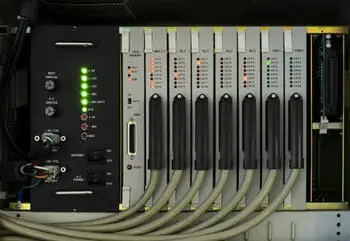There are pros and cons of both hosted PBX as well as on-premise PBX. There are some fundamental differences to each of the systems and they feature advantages that should be known prior to making a decision on one or the other. The move to an IP-PBX business phone system is beneficial regardless of which system is ultimately chosen. However, there are differences and knowing those leads to a better VoIP phone system and a higher level of satisfaction for the company, employees and even callers.

Open source on-premise systems, such as Asterisk, are responsible for driving down costs for VoIP providers and manufacturers. This provides users with the ability to get the latest technology with many more features at a lower cost than what was traditionally available.
WHAT IS CLOUD-BASED HOSTED PBX?
Hosted PBX or hosted VoIP, otherwise known as an Internet phone system is one where the provider is responsible for housing the IP-PBX as well as handling the technology required to provide the services to the phone system. The desk sets will plug into a router and the calls, signaling, and features are handled through an IP-PBX server at the provider’s location. The provider of the hosted PBX charges a monthly fee that is inclusive of a minutes package and potentially certain features. Charges can also be at a per minute calling cost. Either one can be affordable depending on the rates. A company that knows the amount of minutes spent on the phone in a given month can make effective cost comparisons. Extended features may come with additional cost.
WHAT IS ON PREMISE PBX?
On-premise PBX is also known as an IP-PBX phone system. It is similar to a traditional PBX system that resides at a location, such as a computer equipment room or phone closet. The main difference is that IP routing is done with more current technology. The signaling is done with an IP phone to the IP-PBX server using a LAN. Calls can go through a traditional phone company as well as voice over Internet (VoIP) using SIP trunking. Gateway cards are used to connect the system to the traditional phone company provider. The provider can be the one that already provides service, though a SIP trunk can be configured for use with an Internet service telephone provider (ISTP). An Asterisk based system is the most affordable option for on-premise PBX due to the flexibility that is offered with open source software.

CLOUD-BASED HOSTED IP-PBX VERSUS ON-PREMISE IP-PBX
There are some differences between the two options. Understanding benefits and limitations makes it easier to determine the best option for any particular organization. Cost, expansion, and other considerations are laid out to make it possible to compare the hosted IP-PBX and the on-premise IP-PBX within the same categories to learn of the greatest differences.
COSTS
Purchasing an on premise IP-PBX phone system involves buying hardware, which includes a server with the proper number of interface cards (if needed) to be able to connect the telephone company with the IP phones. Hosted IP-PBX only involves purchasing IP phones, though a router and network switch may be needed to ensure there is one specifically dedicated to VoIP.
CLOUD-BASED HOSTED PBX:
- Lower initial equipment cost and set-up cost
- Network qualification is performed by the customer. Any upgrades are at the customers expense
- All IP-PBX feature programming is done by the customer
- No maintenance costs of the IP-PBX, but all on-premise and remote phones and network devices are the responsibility of the customer
- Staff training is the responsibility of the customer
- Low monthly service cost
- Easy to add extra lines
- Upgrades and new features are included
- Extended features, like conferencing, may come with additional costs
ON PREMISE PBX:
- Higher initial cost and set-up cost
- Potentially higher maintenance costs
- Lower monthly cost after expenses are covered
- Ability to SIP trunk to get lower cost calls
- On-premise IP-PBX provider will qualify network
- On-premise IP-PBX provider will install and program IP-PBX
- On-premise IP-PBX will train staff on feature use and “best practices”
IP phones can be identical regardless of layout. For example, the 12 Polycom 550 SoundPoint IP phones can be used for on-premise IP-PBX phone systems as well as hosted IP-PBX systems. The other equipment, such as server, software, routers, switches and battery backup can be very specific for the individual system. $3,000 to $5,000 is typical for purchasing a server with the necessary software and cards. Ongoing server maintenance with hosted PBX will be the responsibility of the provider, which if purchasing an on-premise PBX, the cost would become the burden of the owner, if not included in the IP_PBX package.
EXPANSION COSTS
There are costs to consider for expanding. Adding more phones to an on premise PBX is as simple as purchasing more IP phones, unless any kind of additional licensing is required. With hosted PBX, however, additional IP phones are purchased and added to the service plan requiring additional programming time by the customer. This can also increase the monthly cost, depending on how the company sets up the plan. An Asterisk based on premise PBX will use the administrator GUI interface, where additional extensions can be created.
OTHER CONSIDERATIONS
Satisfaction is the most important aspect of choosing a system, regardless of whether it is hosted PBX or on-premise PBX. Positives and negatives for each system are laid out below.
POSITIVES FOR CLOUD-BASED HOSTED PBX
- Providers have more resources than users, so new feature sets are possible
- New feature installation is handled by provider to avoid confusion
- Picking and canceling virtual numbers is easy and fast
- Moving a phone system is easy. IP phone is plugged into a broadband connection.
- Hosted provides edge border controllers or various other kinds of NAT software to help navigate routers
- Patches and upgrades of the IP-PBX are handled by the provider
- Loss of Internet or catastrophic event has no effect on operations because calls can be sent to voice mail or a mobile phone. This is because of redundancy within an off-site facility that has safeguards including back up power sources.
POSITIVES FOR ON-PREMISE PBX
- Having on premise PBX gives user control to create, adjust and delete users as desired
- New open source feature sets can be added without any license fees
- Current carrier does not have to be changed
- VoIP trunks can be added to save on calling costs
- Server ownership reduces expenses over time
- No DIY time on the part of the customer
- Professional training of staff on new IP-PBX system is handled by the provider
- With SIP trunking, loss of Internet or catastrophic event has reduced affect on operations because calls can be sent to another number or a mobile phone. This is because of failover within an off-site facility that has safeguards including back up power sources.
NEGATIVES FOR CLOUD-BASED HOSTED PBX
- Connections and voice quality are a result of Internet connection
- Loss of Internet results in loss of phone service (settings can be adjusted so that it goes to voice mail or routed to a cellphone)
- Flexibility of system is limited
- Customization of features may be slow or unavailable depending on provider
- Fees can be increased and cancellation fees can be charged
- Stability of provider may vary within operations and finance
NEGATIVES FOR ON-PREMISE IP-PBX
- On-premise IP-PBX needs a provider who can manage it properly
- Expansions may result in complicated projects depending upon the provider
- On premise IP-PBX manufacturer could go out of business, leaving problems with managing root problems
- Technician may need to be called for upgrades and patches on software (and costs can be incurred)
- Loss of power or PBX failure will result in callers not being able to get through, which stops business operations unless you have a SIP provider
By looking at the positives and negatives for both the hosted PBX and an on-premise IP-PBX, it allows a company to determine the best phone system based upon the setup of their organization and what risks they are willing to assume. Companies will benefit from one over the other, so it is a matter of making comparisons prior to choosing one to have installed.

